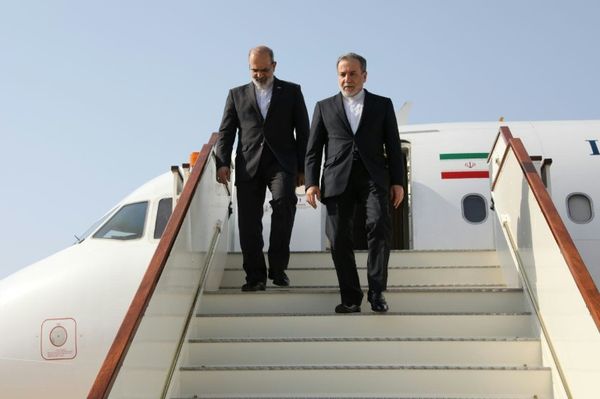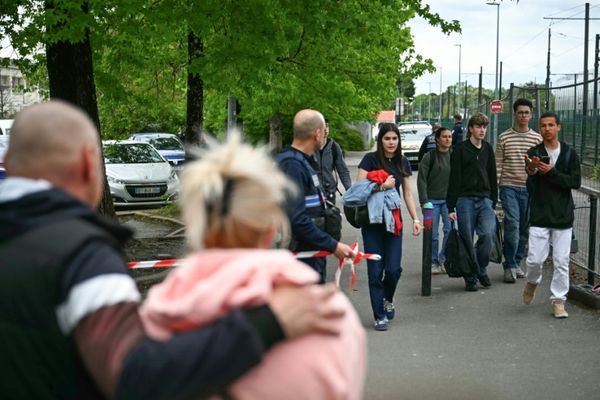The Centre on Thursday conveyed to the Supreme Court its inability to commit to an exact time period within which the Union Territory of Jammu and Kashmir would be restored to full Statehood.
The Union government, however, said Jammu and Kashmir was ready to hold elections “any time now”.
Also read | SC hearing on Article 370 live updates, Day 13
Appearing before a Constitution Bench headed by Chief Justice of India D.Y. Chandrachud, Solicitor General Tushar Mehta assured the court that the Union Territory status of Jammu and Kashmir was only a “temporary phenomenon”.
Mr. Mehta had on Tuesday sought time till August 31 to get instructions from the government about a time frame by which Jammu and Kashmir would revert to Statehood following bifurcation in August 2019. The erstwhile State was reorganised into the Union Territories of Jammu and Kashmir and Ladakh. Ladakh would continue to be a Union Territory unlike Jammu and Kashmir, the Centre had said on August 29.
“I am unable to give an exact time period right now for the Statehood. Complete Statehood may take some time as the State had faced repeated and consistent disturbances for decades together… I assure you we are progressively proceeding to make Jammu and Kashmir a complete State,” Mr. Mehta submitted.
He said Jammu and Kashmir became a Union Territory in an “extraordinarily extreme situation”. Its progress towards Statehood needs to be “infused” with investments. He said the Centre was catalysing the progress to Statehood by pumping investments to the tune of ₹28,400 crore. There were investment proposals, besides that of the Centre, worth ₹ 78,000 crore. Actual investments have been so far ₹2,153 crore. Mr. Mehta said e-initiatives in Jammu and Kashmir have jumped from ₹9,218 crore in 2018 to ₹92,560 crore now. He said 32 out of a total 53 infrastructural projects worth ₹58,477 crore have been completed under the Prime Minister’s Development Package.
‘J&K has seen enormous changes’
Mr. Mehta said Jammu and Kashmir had seen “enormous changes” post abrogation of Article 370 in 2019. Terrorism, infiltration, stone-pelting and casualties among security personnel have reduced by 45.2%, 90.2%, 97.2% and 65.9%, respectively.
He said there were 1,767 incidents of secessionist-spurred stone-pelting in Jammu and Kashmir in 2018. “Now it is nil… In 2018, there were 52 instances of organised bandhs, now it is nil,” the Solicitor General said.
Senior advocate Kapil Sibal, for the petitioners, objected to Mr. Mehta presenting figures in court to prove his case that an “enormous change” happened after abrogation.
“They had 5,000 people under house arrest and Section 144 [curfew] was ordered across the State… Then how could there be any bandh… People could not go to the hospital… His statements in court become part of public space. These proceedings are televised, recorded… These figures are irrelevant to the challenge,” Mr. Sibal said.
Chief Justice Chandrachud said these figures would only be considered as the Centre’s efforts to restore Statehood to Jammu and Kashmir. The constitutional challenge to the abrogation of Article 370 would have to be answered by the Centre on constitutional grounds, and not by quoting these statistics at the court.
“The development work the government says it has undertaken post August 2019 is not relevant to the constitutional challenge… From what you [government] has told us so far, we understand that the roadmap to full Statehood would take time. Right now development work is taking place. Some stability has to be brought about. The Union Territory status of Jammu and Kashmir is not a permanent arrangement… That is, you are envisioning a move from Union Territory to State again, but you cannot give a fixed time by which this can be done,” the Chief Justice addressed Mr. Mehta, who agreed with the summing up.
Groundwork for elections
Meanwhile, Mr. Mehta said the Election Commission had been doing the groundwork for elections in the erstwhile State.
“Till date, the updating of the voter list was going on. This is substantially over, only some part remains. The Election Commission is doing it,” Mr. Mehta said.
He said the three-tier polls in Jammu and Kashmir would be held for the first time after 2019. These would include elections to panchayats (rural areas), municipality and to the Assembly.
As for Ladakh, Mr. Mehta said the Leh part of the elections were already over. The Kargil portion would be conducted in September.







